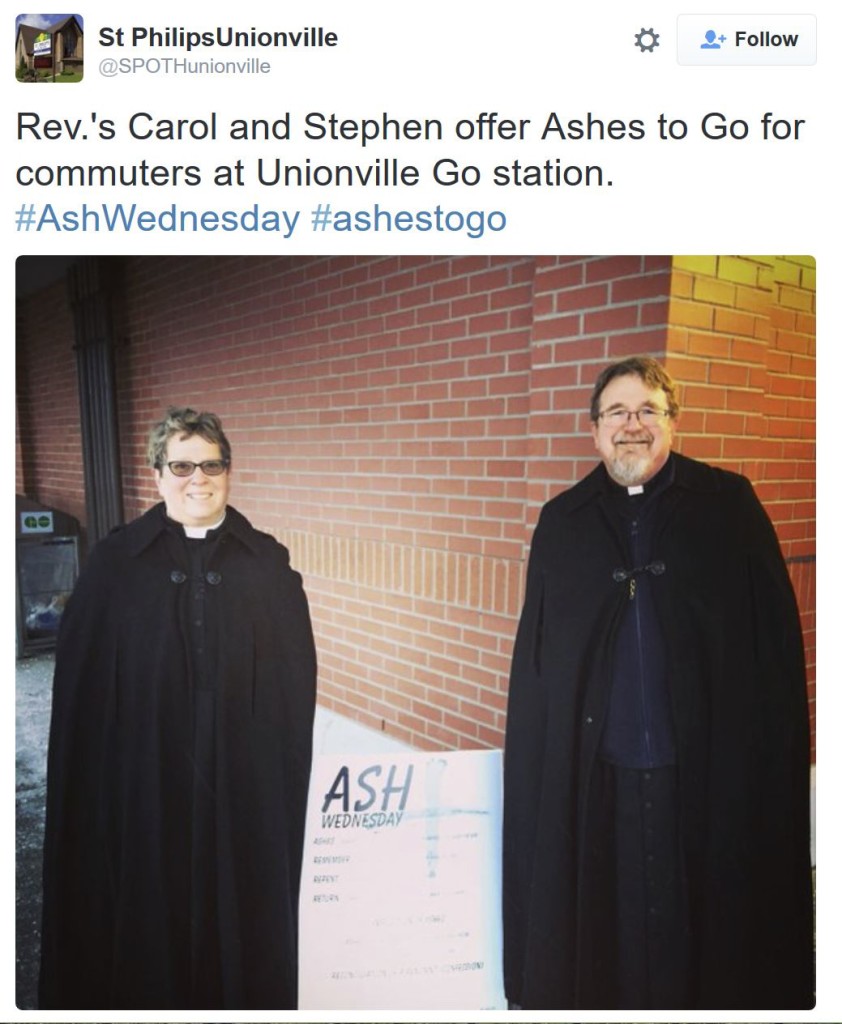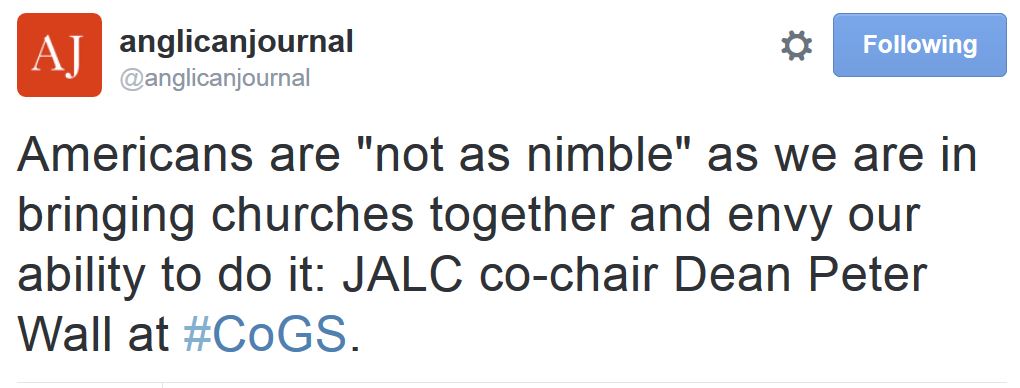Although the Canadian house of bishops have tried to squash a resolution to change the marriage canon to allow same-sex couples to marry, it seems it yet lives. From this communique, it is clear that liberals in the ACoC have not given up.
Michael Thompson, General Secretary of the General Synod, spoke to any possible confusion about the responsibility of the CoGS to forward a resolution for the consideration of General Synod. “C003 was clear in requiring that a resolution proposing a change to the Marriage Canon to accommodate same-sex marriage be placed before General Synod in 2016. CoGS established a commission – chaired by the late Canon Robert Falby – to bring a report to the church. The Council of General Synod has received the report, This Holy Estate. It includes a draft resolution, the text of which will be reviewed by the Council of General Synod at its meeting that begins next Thursday, March 10.”
Dean Peter Wall of the Diocese of Niagara, co-chair of the Planning and Agenda Team for the Council, noted that he is asking members of the Planning and Agenda team to convene by teleconference to develop a process by which CoGS might engage the communication from the House of Bishops. In his additional role as Chair of the General Synod Planning Committee, Wall also affirmed that all the members of the General Synod, including the Order of Bishops, will be asked to listen to one another with care in preparing to address the resolution. “I do not believe that the work of the General Synod can be pre-empted by a meeting of the House of Bishops alone. It is when they meet as the Order of Bishops, in conversation with the Orders of Clergy and Laity, that bishops participate in the shared responsibility of all members of the General Synod to take a decision on this matter.”



